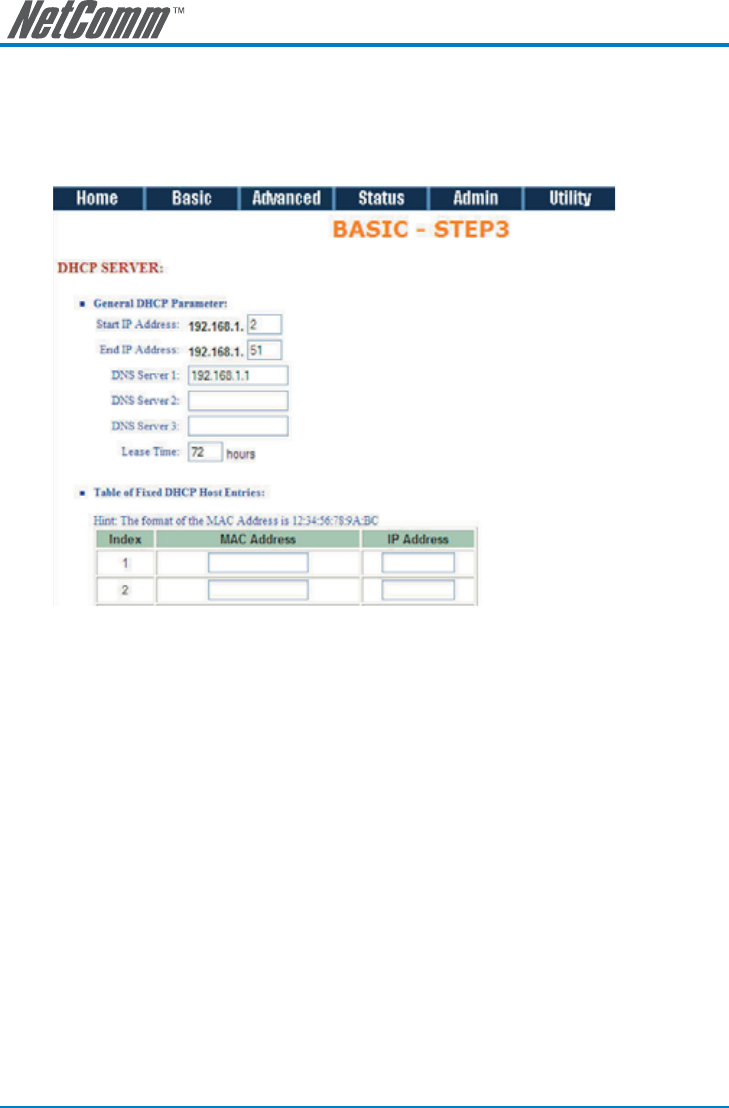
26 NB712 / NB714 User Guide
YML829 Rev1
7.2.2 DHCP Server
Dynamic Host Configuration Protocol (DHCP) is a communication protocol that allows network administrators to
centrally manage and automate the assignment of Internet Protocol (IP) addresses in an organization’s network.
Internet Protocol requires that each machine that can connect to the Internet has a unique IP address. When an
organization sets up its computer users with a connection to the Internet, an IP address must be assigned to each
machine.
Without DHCP, the IP address must be entered manually for each computer. If computers move to another location
in another part of the network, a new IP address must be entered. DHCP lets a network administrator supervise
and distribute IP addresses from a central point and automatically send a new IP address when a computer
is plugged into a different place in the network. If the DHCP server is enabled, you have to setup the following
parameters for processing DHCP requests from clients.
The embedded DHCP server assigns network configuration information for up to 253 users accessing the Internet
at the same time.
IP type: Fixed
IP Address: 192.168.1.1
Subnet Mask: 255.255.255.0
Host Name: SOHO
Some ISPs require the host name as identification. Check
with your ISP to see if your Internet service has been
configured with a host name. In most cases, this field can be
ignored.


















